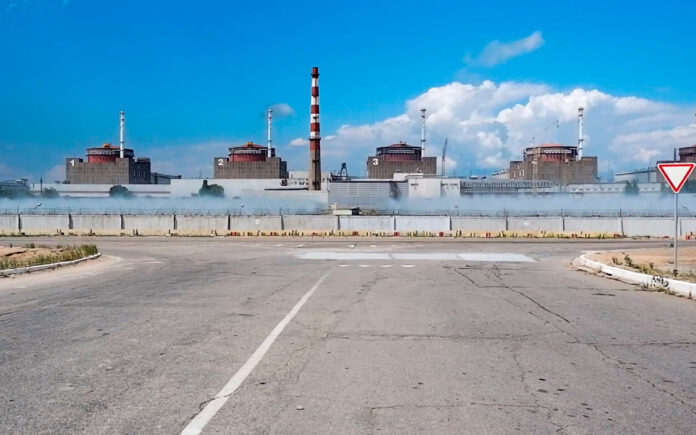Moscow: Russia has officially announced that the Zaporizhzhia Nuclear Power Plant (ZNPP), the largest in Europe, is now a fully integrated “Russian nuclear facility”, dismissing any possibility of its return to Ukrainian or international oversight.
In a statement issued on March 25, the Russian Foreign Ministry declared the plant’s status as part of Russia’s nuclear infrastructure “a settled fact”, asserting that the global community has “no choice but to recognize it.”
“No Return to Ukraine. No Foreign Oversight”
“The transfer of the plant itself or control over it to Ukraine or any other country is impossible,” the ministry stated, ruling out any form of shared authority or international monitoring.
Moscow also rejected the involvement of global regulatory bodies such as the International Atomic Energy Agency (IAEA), dismissing the idea of their participation as “absurd.” The ministry argued that organizations like the IAEA lack the mandate and expertise to operate nuclear facilities—an assertion that contradicts the agency’s well-established global role.
Citing “nuclear security concerns”, the Russian government claimed that NATO’s intelligence assistance to Ukraine makes any form of international oversight “impossible.”
Occupation Since 2022
The Zaporizhzhia plant, located in southeastern Ukraine, fell under Russian control in March 2022 during the early stages of Moscow’s full-scale invasion. Since then, it has remained under Russian military occupation despite repeated international appeals—led by the United Nations and the IAEA—to return the facility to Ukrainian control and demilitarize the surrounding area.
For nearly two years, the plant has been at the center of global concerns over potential nuclear incidents, exacerbated by frequent shelling, power outages, and workforce instability under Russian occupation.
Also Read | Russia’s Sanctions Demand Puts EU in a Diplomatic Bind
Following recent trilateral discussions in Riyadh with U.S. officials, Ukrainian President Volodymyr Zelenskyy emphasized the wider implications of Russia’s continued hold on the facility.
“We talked about the ZNPP… I told him [Trump] that just the station itself won’t work,” Zelenskyy said. “There is a city, people live there, and their families. They blew up the dam, cutting off access to water—there are many issues.”



